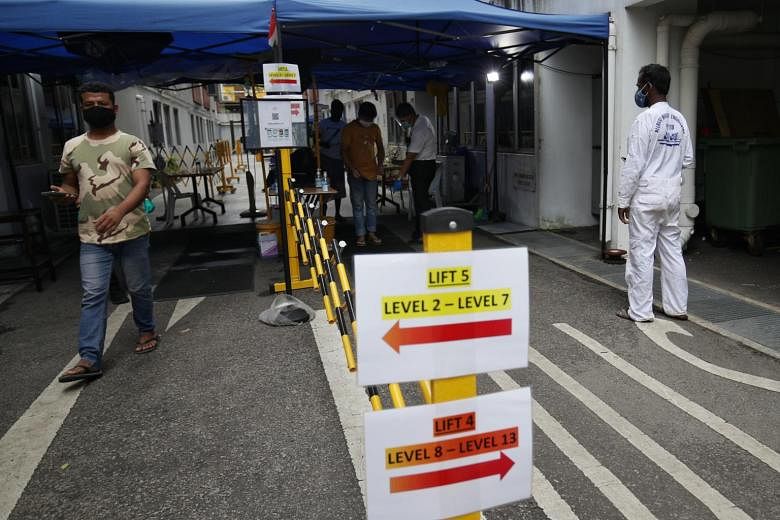SINGAPORE - Migrant workers in dormitories will be vaccinated by the end of this year, the same timeline as for the rest of Singapore, Second Minister for Manpower Tan See Leng said in Parliament on Monday (Feb 1).
The workers - among the priority groups for vaccination - will be vaccinated based on the risk level of the dorms they reside in, with those at higher risk to go first, said Dr Tan.
The minister was responding to a question from Mr Leon Perera (Aljunied GRC), who asked for the timeline of the Covid-19 vaccine roll-out for migrant workers and the measures taken to encourage their uptake.
In his reply, Dr Tan said the communal living and working conditions of migrant workers in dorms put them at higher risk of infection and the formation of large clusters.
Vaccination will be made available to them as part of the national vaccination strategy to protect all Singaporeans and long-term pass holders living in Singapore, he added.
Vaccination of migrant workers helps to reduce the viral load, which in turn lowers the overall risk and helps protect the wider community from an outbreak, he pointed out.
"This will also reduce the potential load on our healthcare workers and facilities," said Dr Tan.
The Ministry of Manpower is working out the vaccination schedule and details with the Ministry of Health, he said, and this will be in tandem with vaccine delivery schedules.
An announcement will be made when ready.
Dr Tan also said that the vaccination effort for migrant workers will be accompanied by a "very comprehensive communication campaign" to inform them of the safety and benefits of the vaccine.
The common side effects and risks of allergic reactions will also be explained, with communication to be done through videos, pamphlets and booklets in the workers' native languages.
Mr Perera also asked if the government will be working with non-government organisations (NGOs) who work with migrant workers to provide reassurances and education.
Dr Tan replied that as far as possible, the ministry will involve all the NGOs in its communications and education strategy.
Covid-19 cases in dormitories accounted for more than 90 per cent of Singapore's 59,536 coronavirus cases, as at Sunday (Jan 31).
But since November last year, there have been zero new cases in dormitories on most days, with none since Jan 16.












